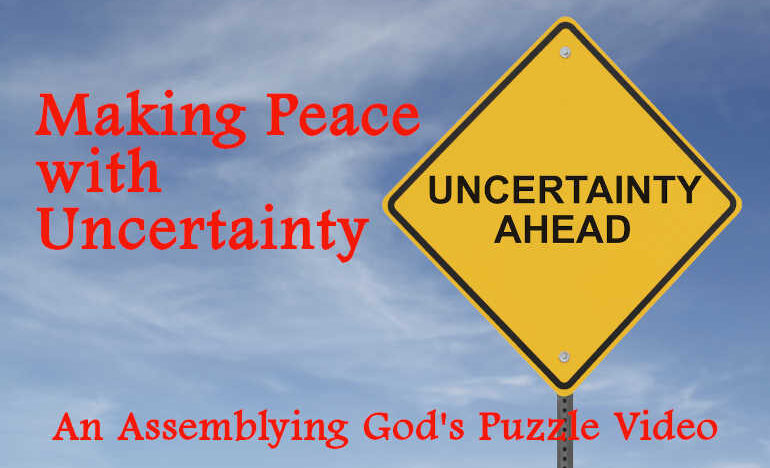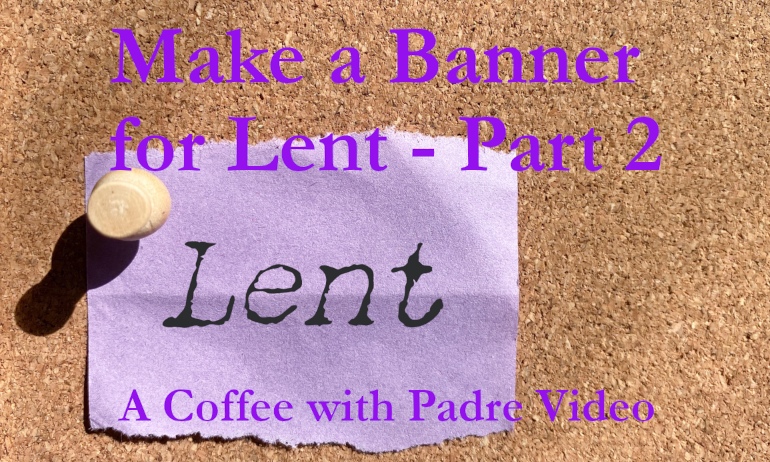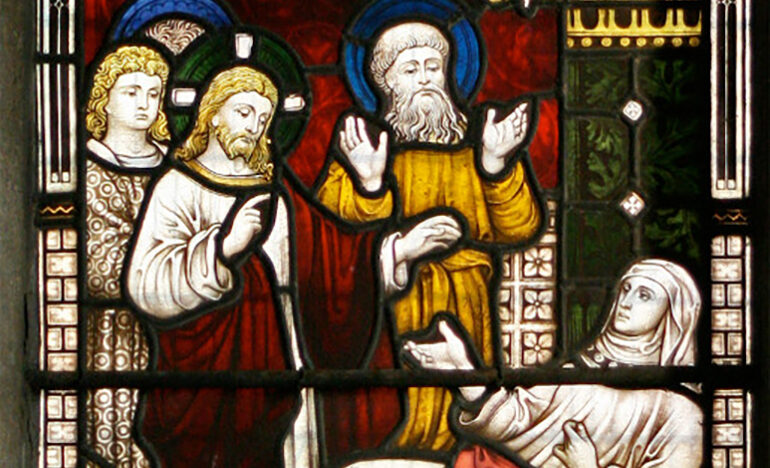Making Peace with Uncertainty

An Assembling God’s Puzzle video
By Fr. Garry Richmeier, CPPS.
God gives us many life puzzle pieces to deal with, some pleasant and others unpleasant. We usually don’t have a problem fitting the pleasant pieces into our lives because we tend to think they should be there. It is the unpleasant pieces which usually challenge us because we really don’t want them and we tend to think they shouldn’t belong in our life. Yet we still have to do something with them. That is why these video blogs usually address the unpleasant or challenging life puzzle pieces.
One of the most unpleasant things for us human beings is uncertainty. We hate it. It tends to trigger our fears of what might happen if things go badly. When our imagination goes down that path, we usually end up envisioning the worst-case scenario. And we can imagine some pretty scary things.
What we usually do to cope with this is to pretend there is certainty. For example, I’m fairly certain I will be able to draw my next breath, although that is not guaranteed. I’m also fairly certain that I will get this video recorded before an asteroid hits the earth and ends everything, although that is not guaranteed either. There is nothing wrong with this kind of pretense. It enables us to function and not drive ourselves crazy pondering the “what if’s.”
We run into problems, however, when we forget that we are pretending, when we mistake our pretense for reality itself. When this happens, we usually latch onto some specific explanation for why things are the way they are that feels like it provides absolute certainty and dispels all doubt. Such explanations are usually put into rigid, black and white terms, leaving little room for other possibilities.
Religions, especially fundamentalist religions, sometimes do this. Traditionally, people have wanted to be certain that they were going to heaven and not hell, so some religions stepped in and explained in detail what people had to do to be certain of their salvation. Cults do the same thing, allaying people’s fear by giving the “answers.”
The avoidance of uncertainty is also the cause of the rise of conspiracy theories today. People are uncertain about why some things are happening out there. That doesn’t feel good, so they adopt some conspiracy theory that seems to provide the answer and clears up the uncertainty.
The costs of avoiding uncertainty in these ways are high. First of all, it is very painful when something happens that forcibly shatters our illusion of certainty. It might be an unexpected failure, illness, or something else that makes us face the fact that certainty is just an illusion. We then have to build a whole new way of looking at, and dealing with, the world.
Avoiding uncertainty at all costs also results in polarization, conflict, and division among us. If I am certain that only my view is right, then those who disagree with me are wrong, and I have to avoid, expel, or get rid of them somehow. Also, if I avoid all uncertainty, I will never venture out of my own little, black-and-white world, and will never change, including growing in wisdom, understanding, or compassion.
So what do we do with uncertainty? We must make peace with it somehow, which means making peace with our fears somewhat.
One exercise to practice along these lines is to try to remember a time when a worst-case scenario you imagined actually came true. For most of us, we can’t think of many times this happened, because what actually happens is usually not as bad as what we can imagine. If we remind ourselves that the worst-case scenario probably won’t happen, it can help us handle our fear.
Another thing to do is to use hindsight to remind ourselves that things have always been uncertain, and yet we have survived and are here today. Seeing that this trend will probably continue into the future can help us deal with our fears.
Another exercise is to remember times when uncertainty pushed us into new experiences, new understanding, or new knowledge. We were uncertain about something (like what visiting another country was like), and our curiosity enabled us to endure the uncertainty and grow in some wonderful way. Remembering experiences like this can help nudge us to embrace uncertainty a little more in the future.
Finally, it is our faith and trust in God and God’s reason for creating such an uncertain world. We can’t get away from the uncertainty, but we can place it all in God’s hands and trust that God will give us what we need to face all eventualities with courage and confidence.
I hope some of this was helpful in helping you deal with uncertainty. I wish you the grace to more easily embrace the reality of uncertainty, and venture “out there” to experience all the unimaginable blessings God has yet in store for you.
All of the videos in this series can be found here: Assembly God’s Puzzle.
Never miss an article published on the Renewal Center website: Sign up to receive our newsletters.
[Fr. Garry Richmeier, a Precious Blood priest and spiritual director, holds a Master’s of Divinity Degree from St John’s University in Collegeville, Minnesota, and a Master’s of Counseling Psychology degree from the University of Missouri-Kansas City. He is a licensed professional counselor and a licensed marriage and family therapist.]
Photo 22993380 © Arnel Manalang | Dreamstime.com
We’d Like to Hear from You!
We’d like to know what you think about this article. Send us a comment using the form below. Do you have a suggestion? Is there something you want to learn more about? Send us a note.
Related

Making a Banner for Lent Part 2
A Coffee with Padre Video
Fr. Timothy finishes his Lenten banner and continues his reflections on how colors and materials become potent symbols that bring the Lenten season alive. The final banner serves as a visual reminder of our spiritual journeys.

Lent Video Four — Guided Meditation: ‘Traveling in the Dust of the Rabbi’
In this video, Fr. Ron reads the Gospel, Mark 1:29-34, for you and then leads you through a guided meditation, taking you deeper into that story. He calls this experience “an example of traveling in the dust of the rabbi.”
Categories
Assembling God's Puzzle Coffee with Padre Cooking & Spirituality Encounters of the 4th Kind Family Matters Reflections on the Eucharsitic Prayers Spiritual Resources Taize Prayers The Contemplative Life Traveling with Pilgrims of Hope Uncategorized Videos Week of Prayer for Uhristian Unity When you need a little help
